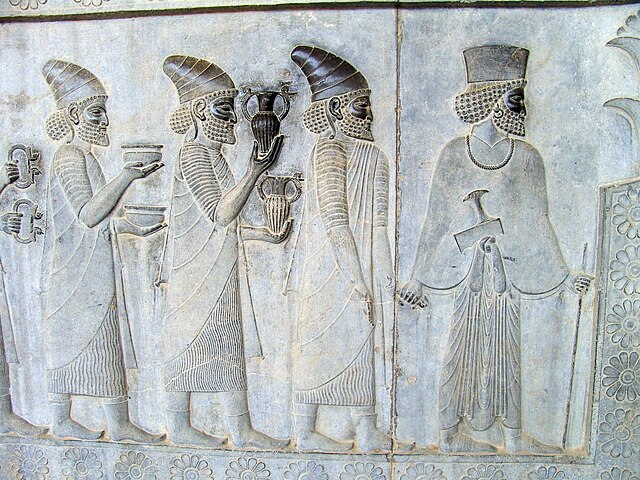A tributary state is a pre-modern state in a particular type of subordinate relationship to a more powerful state which involved the sending of a regular token of submission, or tribute, to the superior power. This token often took the form of a substantial transfer of wealth, such as the delivery of gold, produce, or slaves, so that tribute might best be seen as the payment of protection money. It might also be more symbolic: sometimes it amounted to no more than the delivery of a mark of submission such as the bunga mas that rulers in the Malay Peninsula used to send to the kings of Siam, or the Tribute of the Maltese Falcon that the Grand Master of the Order of St. John used to send annually to the Viceroy of Sicily in order to rule Malta. It might also involve attendance by the subordinate ruler at the court of the hegemon in order to make a public show of submission.
The bunga mas, a form of tribute sent to the King of Ayutthaya from its vassal states in the Malay Peninsula
A tribute is wealth, often in kind, that a party gives to another as a sign of submission, allegiance or respect. Various ancient states exacted tribute from the rulers of lands which the state conquered. In the case of alliances, lesser parties may pay tribute to more powerful parties as a sign of allegiance. Tributes are different from taxes, as they are not collected in the same regularly routine manner that taxes are. Further, with tributes, a recognition of political submission by the payer to the payee is uniquely required.
A procession of high-ranking Assyrian officials followed by tribute bearers from Urartu. From Khorsabad, Iraq, c. 710 BCE. Iraq Museum
Objects in the "Apadana" reliefs at Persepolis: armlets, bowls, and amphorae with griffin handles are given as tribute.
The Tribute Money, George Hayter, 1817.




